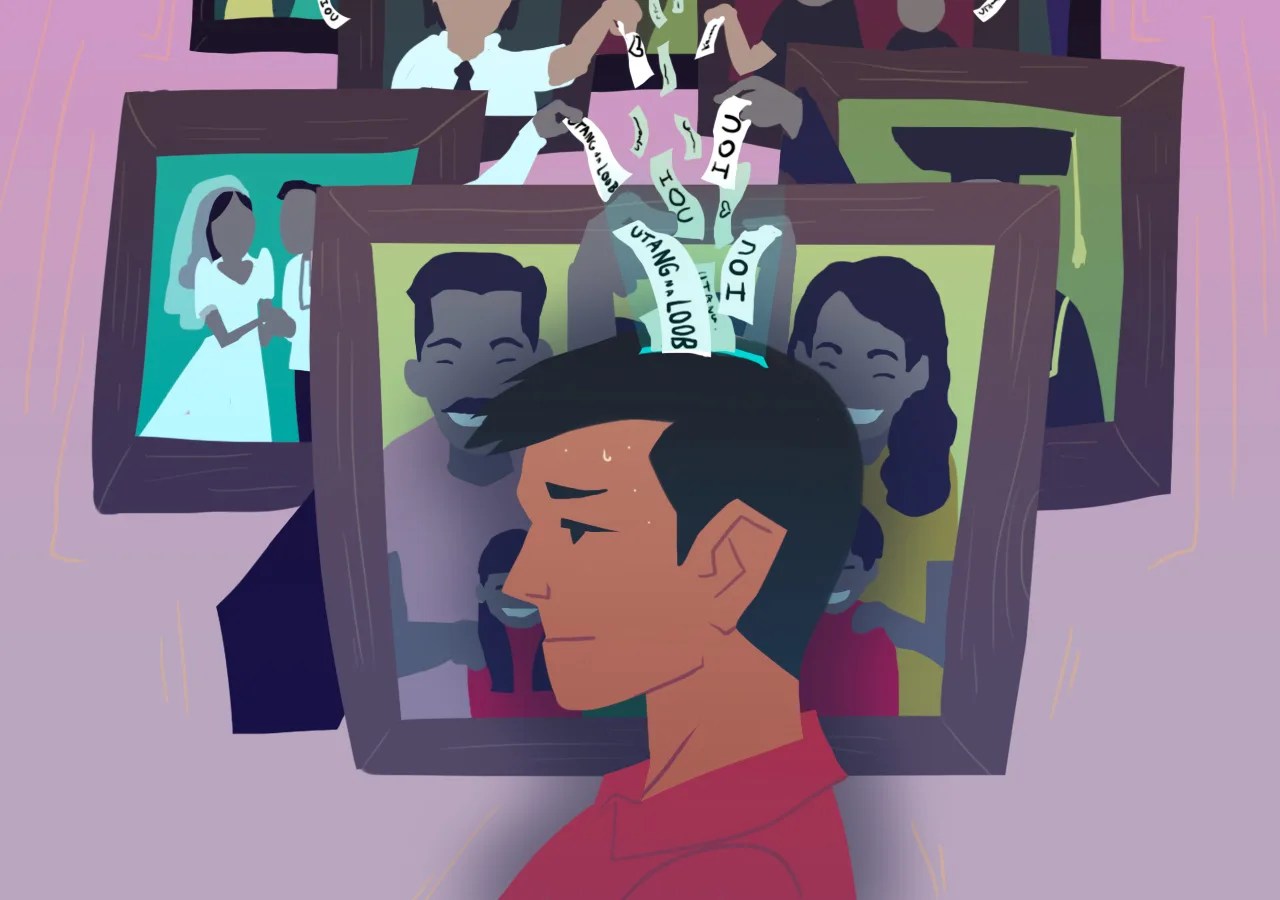Have you ever encountered a situation where someone went above and beyond to help you, and you felt an overwhelming sense of gratitude and obligation to return the favor? In Filipino culture, this feeling has a name: "utang na loob." But it's more than just owing a favor. It's a deeply ingrained cultural value that shapes relationships, behaviors, and even societal norms.
To define utang na loob literally, it translates to "debt of the inside," signifying a moral obligation to repay a person who has done you a significant favor. However, this simple definition doesn't quite capture the depth and complexity of this cultural concept.
Imagine a close-knit community where people rely on each other for support, especially during challenging times. This reliance fosters a deep sense of interconnectedness, where acts of kindness, generosity, and support are not merely transactions but threads that strengthen the fabric of the community. Utang na loob thrives in this environment.
The origins of utang na loob can be traced back to the Philippines' pre-colonial history, deeply rooted in indigenous values of reciprocity and social harmony. It's a concept passed down through generations, woven into folktales, proverbs, and everyday interactions. Understanding utang na loob requires delving into this rich cultural context.
While utang na loob promotes a spirit of mutual support and solidarity, it's not without its complexities. The open-ended nature of the obligation, the lack of a defined timeline for repayment, and the potential for exploitation if misused are some of the nuances that make utang na loob a fascinating yet challenging aspect of Filipino culture.
While the direct translation "debt of the inside" provides a starting point, defining utang na loob accurately requires a deeper understanding. It's about recognizing the weight of the favor received and feeling a genuine desire to reciprocate, not out of obligation, but out of respect, loyalty, and gratitude. It's about understanding the unspoken language of reciprocity that underpins many interactions within Filipino society.
To illustrate, imagine a young student who receives financial assistance from a wealthy relative to pursue their education. The student, in turn, feels a strong sense of utang na loob and might dedicate themselves to their studies, aiming for a successful career to eventually support their family and potentially repay the relative's generosity in the future.
Advantages and Disadvantages of Utang na Loob
| Advantages | Disadvantages |
|---|---|
| Strengthens social bonds and promotes a sense of community. | Can be used to manipulate or pressure others into doing things they don't want to do. |
| Encourages generosity, kindness, and support within relationships. | The open-ended nature of the obligation can create ambiguity and potential for misunderstandings. |
| Creates a safety net of support during times of need. | Can sometimes hinder individual growth or decision-making if one feels pressured to prioritize utang na loob over personal goals. |
While navigating the complexities of utang na loob can be challenging, it's essential to remember that at its core, it reflects the beauty of human connection and the spirit of reciprocity. It highlights the importance of gratitude, loyalty, and understanding the unspoken language of giving and receiving within a cultural context.
As you engage with Filipino culture, remember that understanding utang na loob is key to navigating social dynamics and building meaningful relationships.
'Utang na loob?' Filipino family values gone wrong, and how they affect - The Brass Coq
Utang na Loob: Filipino's Sense of Gratitude and Generosity - The Brass Coq
Pia sa 'toxic' culture ng mga Pinoy na 'utang na loob': Kailan ba - The Brass Coq
Top 10 Mia P. Manansala Quotes (2024 Update) - The Brass Coq
The tricky obligations of utang na loob : Code Switch : NPR - The Brass Coq
Pooh gustong resbakan ang bashers: 'Sana napakain mo ako nu'ng sinasabi - The Brass Coq
Utang na Loob: The Future or the Retirement? - The Brass Coq
Cristy Fermin: 'Anong utang na loob ang dapat kong tanawin sa - The Brass Coq
On "Utang Na Loob Culture" and Liza Soberano's Personal Choices - The Brass Coq
Ano Ang Kahulugan Ng Utang Na Loob - The Brass Coq
Utang na Loob: Filipino's Sense of Gratitude and Generosity - The Brass Coq
(PDF) Upholding an Accommodative Filipino Value: A Measure of Utang na - The Brass Coq
Liza matapang na sinagot ang mga tumawag sa kanya ng 'walang utang na - The Brass Coq
Interview Guide Questions.docx - The Brass Coq
What Filipinos Forget About 'Utang Na Loob' Today - The Brass Coq













